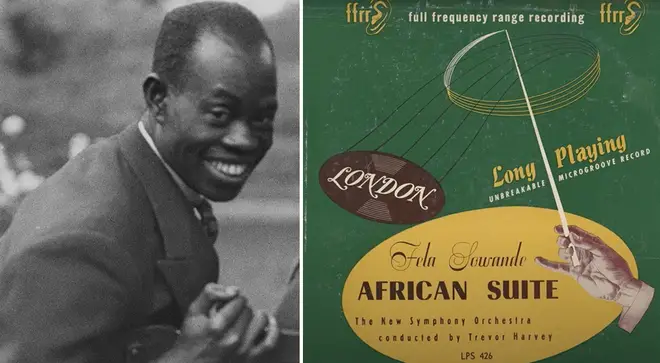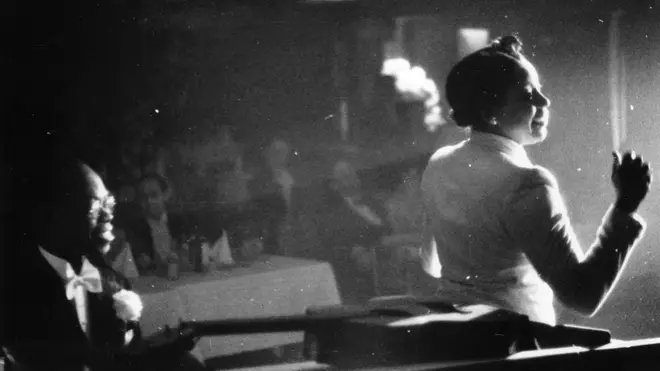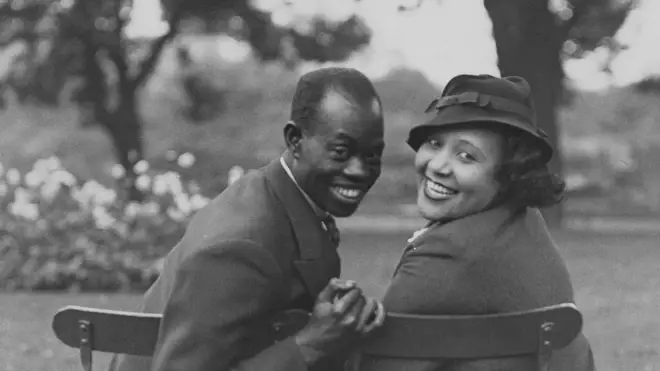On Air Now
Relaxing Evenings with Zeb Soanes 7pm - 10pm
17 March 2022, 13:29 | Updated: 17 March 2022, 13:57

The balance of cultures in both Sowande’s career and the music he left behind makes them both a rich discovery.
Fela Sowande was a Nigerian musician and composer, known for his organ, choral and orchestral works.
The composer, full name Chief Olufela Obafunmilayo Sowande, was born in 1905 in Abeokuta near Lagos in Nigeria, and was the son of a priest and champion of Nigerian church music, Emmanuel Sowande.
His father – as well as the organist, composer and conductor Thomas King Ekundayo Phillips, who was dubbed the “Father of Nigerian church music” – was a big influence on Sowande’s early music education. Sowande learnt the organ with Phillips, and performed as a chorister at his father’s church.
Against this musical background, Sowande achieved a scholarship to attend London’s Royal Society of Organists. He later moved to London, originally to study civil engineering, before he settled on music.
Read more: Black composers who changed the course of music history

Yoruba Lament - Fela Sowande
While he was based in London for his studies – he gained a Bachelor of Music from the University of London and Fellow of Trinity College of Music – the CV he built up was frankly formidable.
He was a theatre organist for the BBC at the same time as being part of a piano duo with Fats Waller; he was a choirmaster at the prestigious Kingsway Hall at the same time as recording tracks for the likes of Vera Lynn and Adelaide Hall (see photo below); he was a band leader, and an in-demand keyboardist.
Sowande’s career also saw him in the role of Senior Music Assistant at the Nigerian Broadcasting Service – something he was appointed MBE in recognition of – and working for BBC Africa Service.
Read more: Vote for Fela Sowande’s music in the Classic FM Hall of Fame 2022

Sowande’s music itself combines his grounding and education in the organ works of Handel and Bach, church choral traditions, and the music of his own heritage, including that of the West African Yoruba tribe, which influenced a lot of Afro-Latin and Caribbean musical styles.
Sowande’s rich cultural background meant his work incorporated West African techniques into Western classical-style orchestral pieces, choral works and organ pieces.
Yoruba musical styles are defined by their rhythmic patterns and the underpinning of dun-dun, a type of drum. These beats, and West African melodies, pervaded Sowande’s music including his organ pieces Yorùbá Lament (watch above) and Obangiji.
One of his best known works is his African Suite, which musicologist Dominique-René de Lerma likened to Copland’s Appalachian Spring in parts. “The suite’s first movement, aptly named ‘Joyful Day’, is lovely and energetic, with a big-hearted opening that brings to mind Copland’s Appalachian Spring,” he writes in programme notes for a 2003 recording of the work by the Chicago Sinfonietta and Paul Freeman, on Cedille Records.
Other orchestral works by Sowande include Six Sketches for Full Orchestra and A Folk Symphony, both of which incorporate West African styles. He was also a prolific writer of organ and choral music.

Fela Sowande earned the Fellowship Diploma (FRCO) from his studies at the Royal College of Organists, which he held on top of his other degrees (see above).
He was appointed MBE for Services to Music in the 1955 Queen’s Birthday Honours List.
Chicago Sinfonietta and conductor Paul Freeman have released an African Heritage Symphonic Series on Cedille records, volume 1 of which included Sowande’s African Suite scored for string orchestra and harp and incorporating traditional Nigerian melodies.
The African Suite is also on CBC Records’ disc of Milhaud and Maurice with CBC Vancouver Orchestra.
Sowande’s work can be found on various other compilations of organ music and Black composers’ work, and several of his works are available to stream on Spotify.